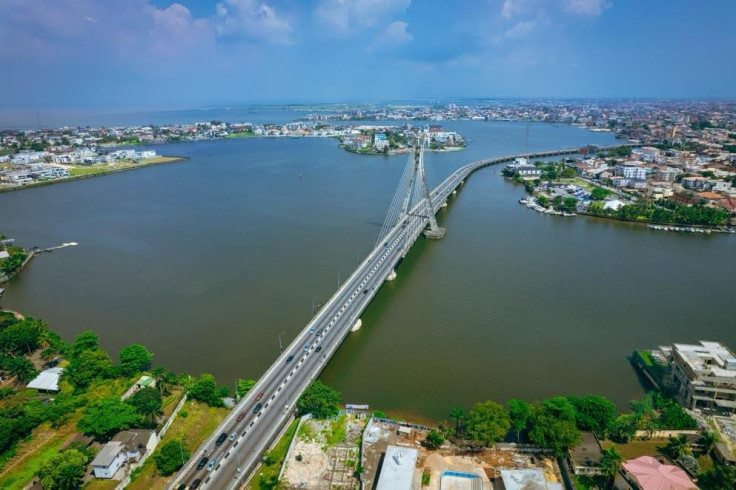With the Right Leadership, Nigeria Can Become a Prime Destination for US Investors
As Trump's transactional diplomacy reshapes global priorities, Nigeria has a rare chance to stand out—if it can confront corruption, modernise infrastructure, and unlock the power of its young workforce.

Donald Trump's return to the Oval Office has once again shifted the global order. Transactional diplomacy has replaced multilateral cooperation, and personal relationships now matter more than institutional ties. For countries that adapt to this reality, opportunities will be plentiful. For those that cannot, the Trump era will be unforgiving.
The Gulf offers the clearest lesson. The Saudi, Emiratis and Qataris positioned themselves as stable investment opportunities, with high potential and low risk. In return, they secured billions in bilateral deals that will serve as the bedrock of future relations. They understood the nature of Trump's 'America First' diplomacy: it is transactional, personal, and immediate.
Nigeria should take note.
Africa will not feature high on Trump's foreign policy agenda, and this is unlikely to change. But as the continent's largest democracy and most populous country, Nigeria has the chance to position itself as the exception. With a population of more than 220 million, the vast majority of whom are under the age of 30, Nigeria represents not only one of the world's most dynamic workforces, but an immense consumer market. The key is preparation. Washington will not seek Nigeria out. But if Nigeria demonstrates stability, economic promise, and strategic value, the United States will respond.
Nigeria enters this moment with enviable advantages. It is the continent's largest economy, a growing hub of technological innovation, and home to the world's youngest population. These are powerful assets in a world where growth markets and youthful labour forces are increasingly scarce. Yet they remain underused.
Poor infrastructure, corruption, and inconsistent regulation have long kept the country from realising its potential. International investors who might otherwise see Nigeria as a frontier of opportunity often walk away in frustration. At such a moment, voices that link Nigeria's internal challenges to the standards expected by global investors become especially significant.
Prince Adewole Adebayo, leader of the Social Democratic Party, whose professional career spanned both Nigeria and the United States, has been clear about what must change. He thinks that Nigeria must confront the roots of domestic stagnation head-on. The nation must aggressively confront internal corruption, prioritise building reliable infrastructure, and offer consistent policy to both its own entrepreneurs and international partners.
He argues that the country has the talent and ambition to lead Africa into a new era, but the government must stop being the barrier to progress. 'International investment into Nigeria will follow as soon as we demonstrate we are serious about realising our potential,' Adebayo says.
Trump's approach makes this even more urgent. His interest in international economic cooperation centers on sectors vital to American national interest. Nigeria has these in abundance.
Energy is one. Long one of the world's most important oil exporters, Nigeria has not kept pace with new technologies or investment strategies that could modernise its energy sector. Under Trump, who has always placed energy security at the center of his agenda, Nigeria could push for partnerships that update production facilities, attract outside expertise, and revitalise an industry too often undermined by poor policy.
Fintech is another. Nigerian firms such as Paystack and Flutterwave have put the country on the global map, proving that innovation is not in short supply. Its young entrepreneurs are powering a new age in the economy, drawing international capital and reshaping Africa's digital landscape. What is missing is an environment where success can be repeated across sectors - not in spite of the government, but with its active support.
But Adebayo believes investment will not arrive unless Nigeria addresses the basics.
Companies will not build factories where electricity is unreliable. Investors will not commit capital if regulations change with every new administration.
This is where Adebayo believes his personal experience matters. With a career that spans both Nigeria and the United States, he thinks he understands how American business leaders think and what they expect.
They do not want lofty speeches about potential. They want opportunities that are honored, partners who deliver, and governments willing to back a population hungry for growth.
The alternative is grim. If Nigeria's economic potential continues to be strangled by corruption, if infrastructure continues to decay, and if regulations remain hostile to innovation, the United States will simply look elsewhere. Kenya and Rwanda are already positioning themselves as stable, high-growth partners. Adebayo thinks Nigeria should be leading them, not trailing.
Trump is not a president who hides his preferences. He values strength, reciprocity, and immediate results. Nigeria cannot expect his administration to construct a partnership without seeing a Nigerian government fostering its vast economic potential.
But if it positions itself correctly, with a government serious about securing lasting economic growth, it can expect trade and investment on a scale that could alter its economic trajectory.
'Nigerians are ready to take a lead on the international scene'. Adebayo says. He is right.
The Trump administration will not hand the country its opportunity. But if Nigeria seizes it, by embracing reform, eliminating corruption, and leveraging its young business minds, then it can become not only America's primary partners, but a global leader in its own right.
© Copyright IBTimes 2025. All rights reserved.





















